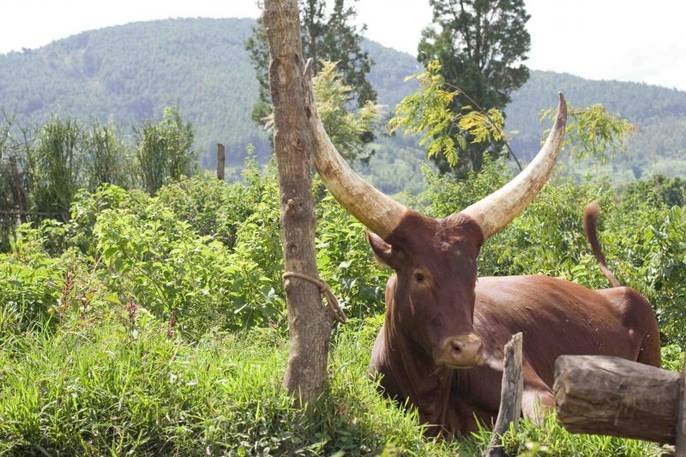


Once again I find a way to return to Rwanda. This time I am with a film crew. Our job is to collect stories that reflect the work of a given aid agency over the past 25 years. As we drive from location to location I have the opportunity to take in the beauty of the lush countryside. I gaze up and down the multitude of rolling hills and take in the shades of green that permeate tea plantations and banana groves.
Charles, our driver, turns up the volume of the radio. It is in Kinyarwanda but my ears perk up anyways and for a brief moment a strongly wish I could understand this language. It would give me an essential instrument to try to decipher this culture. I recognize President Kagame’s muted but firm voice. I ask Charles what is going on. Is he talking about the 5 Rwandan soldiers who were recently killed in Darfur, I ask?
“No, it is the 7th national dialogue,” he responds. “They are held every year and all senior civil servants from around the country are required to participate. They must present what they did throughout the year and answer questions.” Damn, if only I spoke the language, I think to myself yet again. I am determined to persuade Charles to be my translator.
Apparently, one of the Presidential directives of the past year was to ensure that all poor families be given a cow. “It is not about being generous and doing people a favor,” the President had said. “Every Rwandan family has a right to own a cow.” But recent dialogues have revealed that not all the needy have received one. Some local government officials appear to have diverted cows to less than needy families, de facto enriching the haves and impoverishing the have-nots.
“I am giving everyone who has received a cow and yet is not poor a few days to return it immediately,” warned the President over a live radio broadcast of the dialogues that are also streamed online and followed by members of the Diaspora. “I simply want these cows to be given to the poor as originally planned. Leaders found to have wrongfully distributed these cows should also be held accountable.”
A toll free number has been set up for people to call in. Text messages are also arriving. Everyone, anywhere, can call in or text their questions to the President of the Republic or any other civil servant. One young girl rings and asks what happened to the 10,000 Rwandan Francs (US$ 20) contribution her family gave towards the building of a local secondary school. Money was collected from everyone but no school was ever built.
The President first calls on the mayor of that area and then on the provincial governor. “None of them is giving an adequate answer,” translates Charles for me. “The President has told both of them that they are responsible for letting people know what happened to the money that was paid and to the promised school. They were asked point blank to get to the bottom of that issue.”
On a personal level, I find the process amazing. I wonder what it would take for leaders in both Kenya and Italy to act like President Kagame, to hold others accountable and to encourage this level of transparency. Yes I know. Not everything is perfect in Rwanda but hell here is a guy who is overtly asking public officials and their friends to return cows that were not meant for them!
Can you imagine how many arrears Kenyans would have if their leaders returned all that was wrongfully handed out? Let me not even start with Italy. Our very own head of state has a dubious path to the top.
Source URL: http://ftp.iitaly.org/magazine/focus/life-people/article/give-back-cow
Links
[1] http://ftp.iitaly.org/files/12134cow1260567927jpg